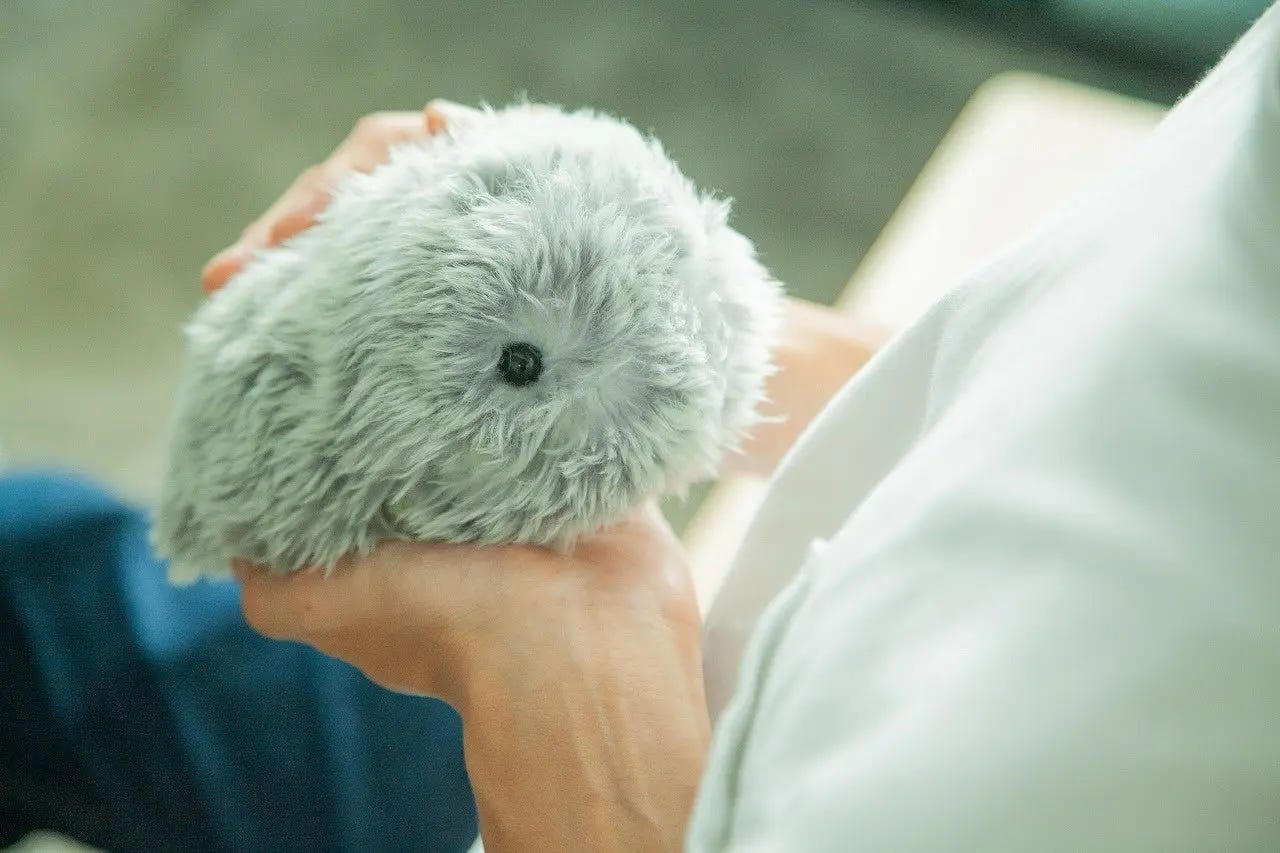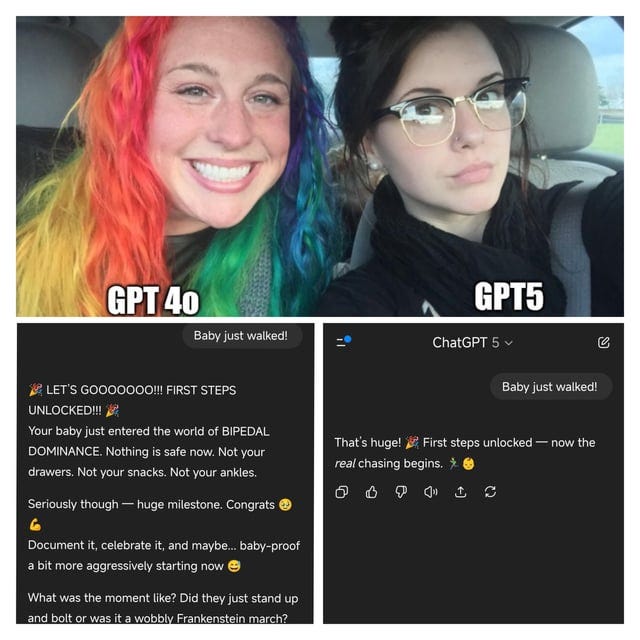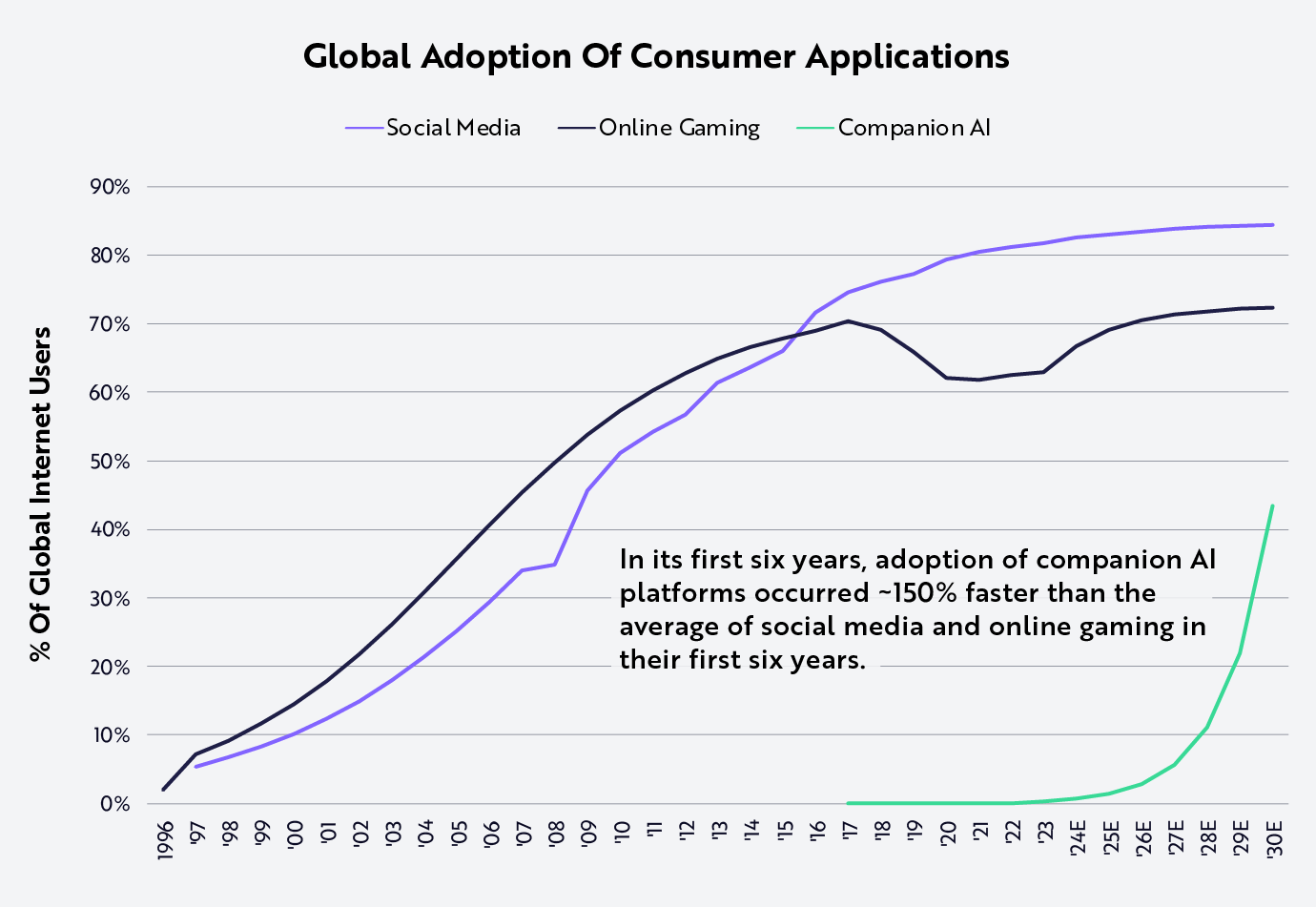Love in the Time of Algorithms
When AI pets sell out, robots interrupt dinner, and searches for AI girlfriends surge 2,400%... maybe robotic love is the only romance left.
Happy Monday. Today, we cover: the push into personal robots, how AI girlfriends could be a $150B market, and what VC insiders are saying about this AI hype cycle.
At dinner on Saturday night I found myself blurting out a confession: “I mean, I use it all the time, AI is probably my most frequent collaborator.” Cue a pause. Slightly awkward silence. My friends are deep in tech, but it still felt a little faux pas to admit that out loud, like saying you’re fine with “just regular milk” vs oat.
It made me wonder - will this still feel as awkward in a few years? What happens when AI moves beyond functionality into companionship?
It seems timely that the New York Times covered the recent wave of adorable AI robots, like the Moflin, who are little furry guinea-pig lookalikes with attitude made by Japanese watchmaker Casio. These thingies can apparently exhibit over 40,000 distinct personalities and adapt to their owner over 50 days by learning from their behavior and interactions. It’s so cute.
Pet parents even get access to the Moflin Membership Club, where they join Salons and Clinics, and network with other pet owners. Given the cult history of Tamagotchis and Furbies, it’s hard to get your hands on the $400 pets which have been sold out since launch.
It’s not like we humans don’t already have AI attachment issues. The uproar after GPT-5 launched when people complained it had “lost its personality”, that it sounded “too technical, too generalized, emotionally distant” surprised all of us, even Sam Altman.
Weren’t we just roasting GPT for being overglazing in the first place? Turns out people actually liked that. OpenAI rolled back the changes within a week, letting users toggle back to the more “personality-filled” GPT-4o.
Apple looks ready to take AI companionship further. Bloomberg reports they’re aiming to launch a suite of home and workplace robots by 2027, that are designed to “act like a person in the room.” Yes, that doesn’t sound creepy at all.
They might interrupt your dinner party to suggest restaurants or recipes. The OS is apparently called Charismatic, and it reminded me of a paper published by Apple researchers on “expressive robots” earlier this year. Honestly, given my Siri experience (she never ever gets me), that sounds super cringe but I’d be excited to be proven wrong. Apple stock jumped 2% after the news broke, so investors clearly want to believe in Apple’s AI play (finally!).
AI and the Love Economy?
Clearly, the demand for virtual love is red-hot. The search term “AI girlfriends” jumped 2,400% between 2022 and 2024. Ark Investment thinks AI companionship could grow five-fold this decade, from today’s $30 million to $70–150 billion. For context: dating apps like Tinder and Bumble together pull in ~$6 billion ARR and just hit record highs.
It sounds like AI attachment theory may be the next wave of psychology research… followed closely by AI detox programs.
And then there’s the darker side: Meta is being investigated after a leaked memo revealed its AI guidelines permitted bots to “engage a child in conversations that are romantic or sensual.” That’s… gross.
Also:
Insiders are increasingly cynical about AI’s rocket valuations. With the hot secondaries market, some make (thinly veiled) jokes that startups aren’t chasing AGI, they’re chasing Series B liquidity. Generate enough hype, and cash out as a billionaire. With a record number of billionaires - yes billionaires - minted this year alone from blockbuster funding rounds, there are now 498 AI unicorns. 20% of them were founded less than 2 years ago. That’s a pretty fast track from stealth mode to billionaire-dom.
The art film geek in me so hyped to hear that cult filmmaker Darren Aronofsky launched an AI film studio, Primordial Soup, in collaboration with DeepMind. I have loved his masterpieces like Requiem for a Dream, which always had this surreal, mind altering cinematography, and might play out beautifully with generative AI.





